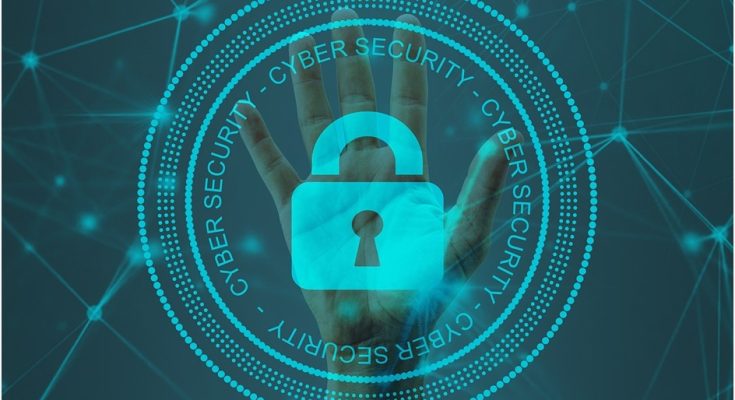Cybersecurity is wholly necessary – especially as we continue to store sensitive information, communicate, and make transactions over the Internet. Consumers have the job of vetting these platforms and taking security measures of their own, but businesses have an even tougher responsibility on their hands: adopting the role of a bodyguard and making sure hundreds or thousands, if not millions, of people can rely on them to keep their data safe.
Online businesses, like bodyguards, aren’t only tasked with stopping dangerous situations from happening but also need to anticipate them, which is why cybersecurity is extremely essential. It’s the ecosystem of locks, alarm systems, and security cameras that work to defend online activities. While it’s necessary for every business in terms of privacy, trust, prevention, and protection online, certain ones, like banks and e-commerce sites, are profoundly dependent on ironclad cybersecurity measures.
E-commerce Sites
E-commerce sites hinge on transactions where customers will browse a site for things they like, fill up their cart, and then, at checkout, enter personal details like their address and credit card information. That’s why these sites need to be impenetrable to cybercriminals. In short, they’re prime targets for data breaches and hacks.
Because they don’t want customers to feel unsafe when making a purchase, these sites will rely on data encryption techniques and use SSL/TLS certificates to make important data unreadable to the wrong people. But the number-one must-have for e-commerce websites is to have a secure payment gateway in place and ensure they adhere to the Payment Card Industry Data Security Standard (PCI DSS) so that credit card details can be handled securely.
Financial Services
People nonchalantly stow away their hard-earned money in financial institutions, placing their full trust in them to keep those funds safe. That’s due to the incredibly high level of cybersecurity that these services have in place. The sheer nature of that type of business and the dire consequences of a breach are why top-tier security is at the core of online financial services.
While e-commerce sites might deal with card details and home addresses, the finance world has account numbers, multiple card details, transaction histories, personal identification details such as social security numbers, and, most threateningly – direct access to people’s potential life savings. This industry values layers of security, implementing multi-factor authentication for users, advanced encryption, and real-time fraud detection systems. Systems are put in place to constantly monitor any security weaknesses, as well as unusual transactions and activity, so users and the business can take immediate action when needed.
iGaming Industry
We’ve shopped and managed our finances online for decades, but more recently, we’ve seen a surge in virtual gambling and sports betting. Although online gambling has been around since the late ‘90s, it was a relatively unregulated industry at the time that sparked fraud and security concerns at every spin or turn. Moreover, it only attracted a niche audience – those who were willing to take the risk and play online slots for real money – or any other gambling-related game.
Nowadays, gambling companies can harness biometric authentication, data encryption, privacy policies such as GDPR to protect user privacy, monitoring and fraud detection like banks, and, of course, secure payment gateways to make sure deposits and withdrawals are done safely and successfully. As gambling has historically had a contentious reputation, the industry can’t leave any room for chance.
Social Media Platforms
Protecting financial and personal information is the utmost priority when it comes to cybersecurity, and that goes for just about every industry. With social media platforms, however, they’ve got a different conflict on their hands. There’s something inherently invasive and disheartening about having your privacy violated and losing cherished photos and private messages to and from loved ones. The concerns with social media are a lot more intimate. After all, no one wants their private messages read or their identity potentially stolen.
With these types of threats on the line, social media sites focus on multi-factor authentication and privacy settings so users feel empowered to take control of their own security. There are also dedicated incident response teams to help mitigate any security issues or data breaches before they escalate. And with all sorts of extra personal information floating around these platforms, they always make sure that they stay compliant with data protection regulations.
Freelance Marketplaces
Freelance marketplaces might not be one of the first places you think of when you think of cybersecurity considerations, but they’re actually highly targeted by malware campaigns. If you work for a freelance marketplace or are a contractor, you might have seen many fraudulent job postings or experienced a flood of dodgy messages yourself. These malicious attempts could be anything from the start of a phishing scam to an effort to inject malware into your device.
Like online banking, these marketplaces use advanced algorithms and machine learning to detect and flag anything suspicious on the site. It’s a preventative system that analyzes patterns that may be out of the ordinary and protects users from falling victim to scams and cybercrime. If you consider everything that transpires on a freelance platform, you’ll notice that there’s sensitive file and information sharing, personal data, large transactions, and continuous job postings and applications. Such a plethora of happenings means cybersecurity measures need to be seriously enforced at all times in the form of data backup, regulatory compliance, and continuous monitoring and updates.




